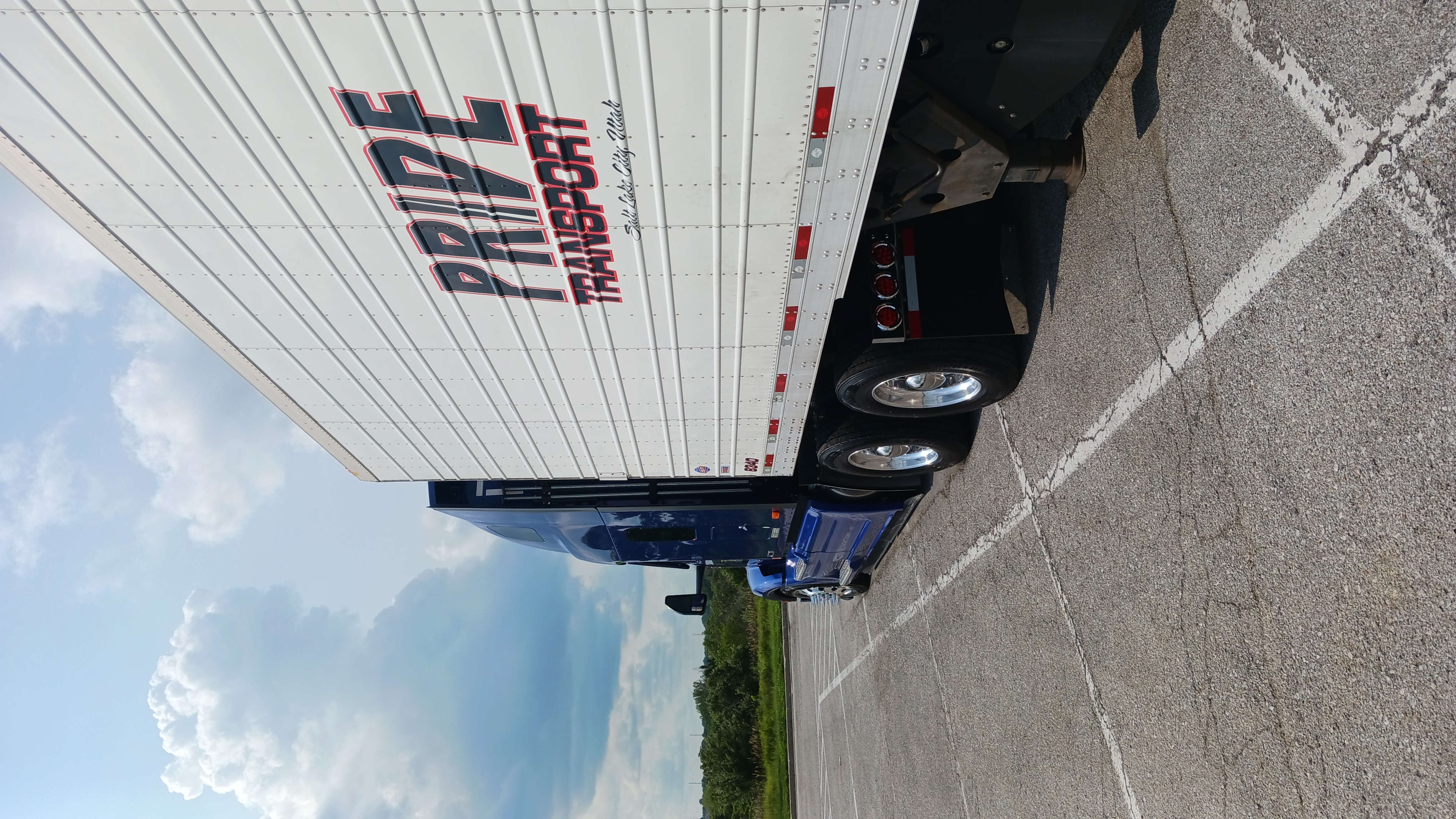by Pride Transport | Aug 22, 2024
Committing a moving violation is serious for any driver, but for truck drivers, too many moving violations can be potentially career-ending. Safely and responsibly operating a commercial motor vehicle (CMV) is the most important part of being a truck driver, which is why it’s essential to understand the traffic violation point system. The more you know about the consequences of poor or dangerous driving, the more vigilant you can be in practicing and encouraging safer vehicle operation. Keep reading to learn more about moving violations and their impact on your CDL.
Overview of Moving Violations
A moving violation (or traffic violation) is any breach of traffic laws committed by a driver in a vehicle while the vehicle is in motion. The “moving” designation is what sets this type of violation apart from other vehicular violations, such as parking violations or not having proper insurance and registration.
There are several different types of moving violations. Some of the most common include speeding, reckless driving, and following too closely, though even these broad categories can be broken down into even more specific violations. The most flagrant violations can be considered felonies.
Each violation type is assigned a point value based on its severity. The points are applied to a person’s license, and reaching a certain number of points results in penalties. This could include fines, being required to take driving classes, and revocation of your CDL.
According to the FMCSA, “Prior research has shown that drivers suspended for driving reasons are three times more likely to be in a crash than a person suspended for a non-driving reason, and six times more likely to be in a crash than a person who has never been suspended.” The FMCSA is committed to creating safer roadways for the public and for CMV drivers, and the point system is one strategy they use to deter reckless or dangerous vehicle operation.

Types of Violations That Will Cost You Your CDL
The federal government closely monitors what they classify as serious and major traffic violations for CMVs. CDL holders charged with two serious traffic violations in three years can expect to have their CDL revoked for 60 days. Those who get three violations in three years are subject to a 120-day revocation.
Some examples of serious violations include:
- Excessive speeding (15 or more miles per hour over the posted legal speed)
- Following too closely (always important, but truck drivers need to be more careful about maintaining appropriate following distance for safe braking)
- Distracted driving
- Operating your vehicle without proper CDL documentation
- Any traffic violations that prove fatal
Major violations are more severe than serious violations, which is why the punishment is severe, too: a one-year CDL suspension for any major violation. Note that one year is the minimum amount of time your CDL will be revoked for a major violation, and that it could be longer. (Drivers operating a hazmat CMV when committing a major violation have their CDL revoked for a minimum of three years.)
Examples of major violations are as follows:
- Driving under the influence
- Refusing a chemical test (for example, a blood alcohol concentration test)
- Leaving the scene of an accident
- Negligently causing a CMV-related fatality
States also have their own traffic laws and corresponding violations, so truck drivers must be aware of both federal law and state law whenever they are driving, especially if their routes regularly take them across state lines.
Special rules applying to CMVs
Truck drivers and other CMV operators are required to follow specific protocols at railroad crossings. Failure to follow railroad crossing signs and signals, or failure to stop at a crossing, can result in a 60-day to up to one year suspension of the driver’s CDL. The length of the suspension depends on the driver’s record.
Lifetime disqualifications
Committing a second major traffic violation, or a major traffic violation following one deemed “serious,” is cause for a lifetime CDL suspension. Certain states will reinstate the CDL after a set number of years, though, so it may be possible in certain states and situations to obtain a CDL in the future. Also, according to NOLO, “Using a CMV for human trafficking or controlled substance distribution will result in permanent lifetime CDL disqualification (without the possibility of reinstatement).”
Personal Moving Violations Could Affect Your CDL
Truck drivers might think that any moving violations they’re charged with in their personal vehicles won’t impact their professional driving, but that’s not entirely true. Certain moving violations committed in a non-CMV can still result in a suspended or revoked CDL.
- Any moving violation recognized as “major” will cost you your CDL, even if you were driving a non-CMV at the time of the violation.
- If a CDL-holding driver’s normal state driver’s license is revoked or suspended, their CDL privileges are similarly revoked or suspended.
Certain states have additional requirements and rules regarding personal vehicle operation and its impact on your CDL — another reason why it’s important to know the local and state laws as well as federal regulations.
Make Safe Driving a Priority To Avoid Moving Violations
Before they can even obtain a CDL, truck drivers must demonstrate that they are skilled at operating CMVs. Still, it’s good to review even the most basic safe-driving skills regularly.
- Buckle up! It’s one of the easiest ways to stay safe.
- Follow all posted speed limits.
- Allow plenty of following distance between your truck and the vehicles ahead of you. Allow even more room in rainy or icy conditions.
- Maintain focus on the road, regularly scanning the width of the roadway.
- Take overtired cues seriously. If you begin to feel sleepy, find a spot to safely pull over and rest for a bit.
- Follow traffic signals and practice extra caution in areas or traffic situations that are new to you.
Maintaining a clean driving record is crucial for truck drivers — after all, driving is your livelihood, and the job puts you directly in the path of hundreds or thousands of other motorists every day. Understanding the traffic violation point system doesn’t only help you prioritize safety, but it also empowers you with knowledge to help keep you on the road.
We value the safety of our drivers and team at Pride, which is why we take extreme care in properly maintaining our vehicles and equipping them with the most innovative safety features. Learn more about Pride Transport today!
